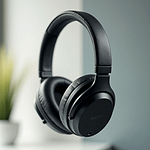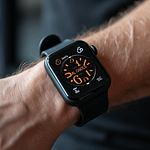Smartwatches are more than just tech accessories; they are tools for enhancing productivity, monitoring health, and staying connected. Whether you’re a fitness enthusiast, a busy professional, or someone who loves cutting-edge gadgets, choosing the right smartwatch can be challenging with the multitude of options available.
Here’s a detailed guide to help you make an informed decision.
Understanding Compatibility
Operating System Integration
The first step in choosing a smartwatch is ensuring compatibility with your smartphone. Apple Watches work seamlessly with iPhones, leveraging the Apple ecosystem. On the other hand, Wear OS-powered devices like the Google Pixel Watch 2 or Samsung Galaxy Watches are optimized for Android users.
💡 Tip: If you’re an Android user, consider Samsung Galaxy Watches for their additional features, including a custom UI on Wear OS.
Health and Fitness Tracking
Core Features
- Heart Rate Monitoring: Most smartwatches offer basic heart rate tracking. Advanced models like the Apple Watch Ultra 2 include ECG functionality to detect irregular rhythms.
- SpO2 Monitoring: Blood oxygen level tracking is crucial for athletes and those monitoring their respiratory health.
- Sleep Tracking: Devices like Fitbit offer detailed sleep analysis, breaking down light, deep, and REM sleep stages.
Exercise Modes and GPS
For fitness enthusiasts, features like multiple exercise modes and GPS tracking are essential. Watches like the Samsung Galaxy Watch Ultra deliver accurate GPS for outdoor activities.
| Feature | Best Watches |
|---|---|
| ECG Functionality | Apple Watch Ultra 2 |
| SpO2 Monitoring | Garmin Forerunner, Fitbit |
| Advanced GPS | Samsung Galaxy Watch Ultra |
Battery Life
Battery Longevity
Battery life can vary significantly. For example:
- OnePlus Watch 2: Offers up to 100 hours with its dual-chipset technology.
- Apple Watch Ultra 2: Provides about 36 hours of usage.
If you rely on GPS or fitness tracking extensively, prioritize devices with extended battery life.
📊 Battery Life Comparison
| Smartwatch | Battery Life |
|---|---|
| Apple Watch Ultra 2 | 36 hours |
| OnePlus Watch 2 | 100 hours |
| Fitbit Versa 4 | 96 hours |
Display Quality
Screen Technology
Premium models typically feature AMOLED or OLED displays, known for vibrant colors and deep contrasts. For outdoor visibility, the Samsung Galaxy Watch Ultra’s Super AMOLED display is an excellent choice.
Always-On Display
An always-on display allows you to glance at the time or notifications without waking the device fully, a feature found in most high-end models.
Durability and Build Quality
Water Resistance
For swimmers or outdoor users, water resistance ratings like 5ATM or IP68 are crucial. These ratings ensure the watch can withstand rain, splashes, or even submersion.
Rugged Designs
Outdoor enthusiasts should consider rugged options like the Apple Watch Ultra 2, built with titanium and sapphire glass for added durability.
Smart Features
Notifications and Calls
Smartwatches support notifications and calls directly from the wrist. Models with LTE functionality, like the Samsung Galaxy Watch Ultra, allow standalone use without a phone.
Voice Assistants
Built-in assistants like Siri, Google Assistant, or Bixby offer hands-free control. Opt for a watch with a robust app ecosystem like Apple’s watchOS or Google’s Wear OS for enhanced functionality.
Design and Comfort
Size Options
Smartwatches come in varying sizes. For instance, the Google Pixel Watch 3 offers sizes like 41mm and 45mm, catering to different wrist sizes.
Customizable Straps
Easily swappable straps allow users to adapt their watch for formal occasions, workouts, or casual wear.
Price Considerations
Budget vs Premium
Budget-friendly options like the Fitbit Versa 4 provide essential features but may lack advanced health sensors or premium materials. High-end models like the Apple Watch Ultra 2 justify their price with comprehensive features and superior build quality.
Conclusion
Choosing the best smartwatch involves evaluating compatibility, health tracking, battery life, display quality, durability, smart features, design, and price. By balancing these factors against your personal needs, you can find the perfect match for your lifestyle. Whether it’s a fitness-first approach with the Garmin series or seamless integration with the Apple Watch, there’s a smartwatch for everyone.








